What are the continuing education requirements for a NYS CPA?
For Certified Public Accountants (CPAs) in New York State (NYS), earning the prestigious license is just the beginning. To maintain their professional standing and ensure they remain at the forefront of the financial world, NYS CPAs are mandated to complete ongoing education through Continuing Professional Education (CPE).
The accounting profession is dynamic, with new technologies, global economic shifts, and complex legal frameworks constantly emerging.
This article will provide a clear and comprehensive breakdown of the NYS CPA continuing education requirements. We'll cover how many hours are needed, what types of courses qualify, the essential process for tracking and reporting credits, and critically, what consequences CPAs face if they fall short of these crucial compliance standards. Understanding these requirements is vital for every NYS CPA to protect their license and enhance their professional journey.
What Are the Continuing Education Requirements for a NYS CPA?
Certified Public Accountants in New York State must adhere to specific mandatory CPE requirements established by the New York State Education Department (NYSED), through the Office of the Professions.
General Overview:
License Registration Cycle: CPAs in NYS register their license every three years. The CPE requirements must be met during each three-year registration period. However, for practical purposes and to avoid last-minute rushing, it's advised to complete education annually.
Approved Providers: All CPE courses must be taken through approved providers. These providers are recognized either by NYSED directly or by the National Association of State Boards of Accountancy (NASBA). It's crucial to verify a provider's credentials before enrolling in a course.
Two Reporting Options: NYS CPAs have the flexibility to choose between two main options for meeting their CPE obligation:
Option 1: The "Annual" Standard
Complete 40 hours of acceptable CPE each year. These 40 hours can be in any combination of recognized subject areas (technical or non-technical, as defined below), as long as they contribute to professional competence.
Option 2: The "Concentration" Standard
Complete 24 hours of acceptable CPE each year within one of four specific recognized concentration areas:
Accounting
Auditing
Taxation
Advisory Services (which includes management consulting, financial planning, etc.)
The remaining 16 hours (to reach 40 total annual hours) can be in any other recognized subject area. This option is often chosen by specialists.
It's important to select the option that best suits your professional practice and to track your hours meticulously throughout the year, rather than deferring all education until the end of your three-year registration period. This proactive approach helps ensure continuous compliance and meaningful professional development.
How Many Hours of Continuing Education Are Required Each Year?
While the NYS CPA continuing education requirements are technically based on a three-year registration period, the state strongly encourages and effectively mandates annual completion of hours. Let's break down the specific hour requirements and category rules.
Annual Hour Requirement:
As discussed, CPAs must choose between 40 hours of CPE per year (general option) or 24 hours per year in a concentrated area (plus additional hours to reach 40 total).
This annual benchmark helps spread out the learning and keeps knowledge fresh.
Specific Category Requirements:
Beyond the total annual hours, there are mandatory subject-specific requirements that must be fulfilled over each three-year registration period:
Ethics Training:
At least 4 hours of approved professional ethics training are required every three-year registration period.
This training must focus on ethical conduct, integrity, independence, and the rules and regulations governing the practice of public accountancy in New York.
The ethics course must be approved by NYSED or NASBA specifically for this purpose.
Technical Fields of Study:
These are core areas directly relevant to public accountancy. Examples include:
Accounting and Auditing: (e.g., GAAP, GAAS, IFRS updates)
Taxation: (e.g., federal, state, and local tax laws, compliance)
Advisory Services: (e.g., consulting, financial planning, forensic accounting)
Specialized Knowledge: (e.g., industry-specific accounting, IT relevant to financial systems)
A significant portion of your 40 (or 24) annual hours will typically fall into these technical categories.
Non-Technical Fields of Study:
While technical skills are paramount, NYSED recognizes the importance of broader professional development. Up to 16 hours per year can be earned in non-technical fields, provided they are relevant to your professional role and enhance your competence.
Examples include: communication skills, leadership and management, personal development relevant to a professional role (e.g., public speaking, time management), marketing specific to CPA services, and firm administration.
New Licensees:
New CPAs often have slightly different requirements depending on their initial registration date.
Importance of Annual Compliance:
The emphasis on annual completion is crucial. Waiting until the last year of the three-year cycle to complete all CPA CPE hours New York can lead to:
Difficulty finding sufficient high-quality courses.
Increased stress and time pressure.
Risk of falling short if unexpected events occur.
Proactive, annual planning of your CPE ensures continuous professional growth and effortless compliance.
What Types of Courses Count Toward CPE for CPAs?
Not all educational activities qualify for CPE for CPAs in NYS.
Approved CPE Formats:
The following types of learning activities are generally accepted for CPE credit:
Live Seminars and Workshops: Traditional in-person events that provide interactive learning. This includes conferences and professional meetings offering educational sessions.
Webinars (Live or On-Demand):
Live Webinars: Count as group study and are popular for their flexibility.
On-Demand Webinars/Self-Study: These must include mechanisms to verify participation and comprehension, such as periodic review questions and a final assessment.
University or College Courses:
Credit Courses: Each semester hour typically equals 15 CPE hours; each quarter hour equals 10 CPE hours.
Non-Credit Courses: CPE hours are awarded based on contact hours, as determined by the provider.
Self-Study Programs: These programs must be developed by an approved provider and include learning objectives, content, and a means for evaluating completion and comprehension (e.g., a final exam).
They can be in various forms like printed materials, audio, video, or online modules. Instructor/Lecturer/Author Credit: CPAs can earn CPE credit for teaching a qualified course or authoring a relevant publication, generally for the preparation time and presentation time, often capped or limited to specific numbers of hours.
Acceptable Subject Areas:
The content of the course must be directly related to professional competence and the practice of public accountancy. Acceptable subjects typically fall into these broad categories:
Accounting and Auditing Updates: (e.g., U.S. GAAP, IFRS, GAAS, Government Auditing Standards).
Taxation: (e.g., federal, state, local tax laws, tax planning, preparation).
Advisory Services: (e.g., management consulting, IT consulting, financial planning, forensic accounting).
Governmental Accounting: Specific standards and practices for government entities.
Ethics and Professional Conduct: (Mandatory 4 hours per three-year period).
This includes topics like independence, objectivity, due care, and relevant NYS rules. Information Technology: Relevant to accounting and financial systems (e.g., cybersecurity, data analytics tools, blockchain for finance).
Specialized Knowledge: Specific to an industry or niche area of accounting.
Important Note: Courses that are purely for personal interest (e.g., hobby classes, personal investment strategies not related to client advice, basic software training not specific to accounting) generally do not qualify for CPE credit. The focus must always be on enhancing professional competence as a CPA.
How Do CPAs Track and Report Their Continuing Education?
Effective recordkeeping and timely reporting are as crucial as completing the CPE hours themselves. For New York State CPA license renewal, meticulous tracking is non-negotiable.
Recordkeeping Requirements:
NYS CPAs are legally required to maintain thorough documentation for at least five years from the date of course completion.
Certificates of Completion: Issued by the CPE provider, detailing the course title, date, provider name, and number of CPE credits earned.
Course Outlines/Descriptions: Proof of the course content, learning objectives, and that it qualifies as professional education.
Provider Name and Number: Ensure the provider is approved by NYSED or NASBA.
Attendance Verification: For self-study or online courses, proof of engagement (e.g., completion of quizzes, time spent in the module).
Reporting Compliance:
CPAs do not typically submit their CPE certificates directly to NYSED each year unless specifically requested (e.g., during an audit).
Instead, during each three-year license renewal period, CPAs will attest to their compliance with the CPE requirements via their NYSED online account. You will certify that you have completed the necessary hours and categories.
Practical Tracking Tips:
Utilize a Dedicated Tracking Tool: Many professional accounting software suites, professional organizations (AICPA, NYSSCPA), or even CPE providers offer dedicated CPE tracking tools.
These tools often categorize hours, remind you of deadlines, and help organize certificates. Simple Spreadsheet: An Excel or Google Sheet can be an effective manual tracking tool. Create columns for: Date, Provider, Course Title, Subject Area, CPE Hours, Ethics Hours (if applicable), and a link to the certificate.
Verify Provider Credentials: Before you invest time and money, always check that the CPE provider is approved by NASBA or NYSED. This information is usually prominently displayed on their website or course materials.
Plan CPE Across the Year: Don't wait until the last few months of your registration cycle. By planning your CPE annually, you can strategically choose courses that are most relevant to your current practice and avoid last-minute scrambling that often leads to less impactful learning.
Keep Digital and Physical Backups: Store digital copies of certificates in a cloud-based folder and consider keeping physical copies in an organized file.
Proactive tracking ensures that when your NY CPA ethics course requirement or general hour deadlines approach, you have all the necessary information readily available, protecting your license and professional standing.
What Are the Consequences of Not Meeting NYS CPA CPE Requirements?
Falling short of the NYS CPA continuing education requirements is not merely an administrative oversight; it can lead to severe professional penalties that impact a CPA's ability to practice and their professional reputation.
Potential Penalties:
License Registration Delays or Suspension: If you fail to certify compliance with the required CPE hours during your three-year license renewal period, your license registration will likely be delayed. Without a current registration, you cannot legally practice public accountancy in New York State. In more severe or prolonged cases, the license could be suspended or revoked.
Disciplinary Action: The State Board for Public Accountancy, under the NYSED, has the authority to initiate disciplinary action against CPAs who are non-compliant. This can range from official reprimands to fines, additional mandatory education, or even public disclosure of the violation.
Inability to Practice: The most immediate and impactful consequence is the inability to legally offer public accountancy services in New York. This directly affects your employment, client relationships, and income. You cannot sign attest reports, perform audits, or represent yourself as an actively licensed CPA in NYS until your deficiencies are corrected and your license is active again.
Professional Reputation Damage: Non-compliance can damage a CPA's professional reputation and credibility among peers, clients, and employers.
Trust is paramount in accounting, and a lapse in professional standards can be hard to overcome.
The Remediation Process:
If you are found to be deficient in your CPE hours, you will typically be contacted by NYSED and required to undertake a remediation process, which may include:
Submitting Proof of Make-Up Hours: You will need to complete any missing CPE hours promptly and provide documented proof.
Paying Associated Fines or Fees: Financial penalties are common for non-compliance.
Completing Additional Courses: The Board may mandate specific additional ethics or technical courses beyond the standard requirements.
Probationary Period: You might be placed on probation for a period, during which your CPE compliance could be more closely monitored.
Encouraging Proactive Compliance: The best strategy is always proactive compliance. Plan your CPE early each year, diligently track your hours, and verify provider credentials. Protecting your professional standing and reputation is paramount for any NYS CPA, and meeting your CPE obligations is a fundamental part of that responsibility.
Conclusion
Maintaining a Certified Public Accountant license in New York State demands careful and continuous attention to the annual CPE for CPAs requirements. From understanding the required hours and categories to selecting approved courses and meticulously tracking your progress, each step is vital for seamless New York State CPA license renewal.
However, continuing education is far more than just a regulatory hurdle; it is a profound opportunity. In a profession that constantly reinvents itself with new standards, technologies, and ethical challenges, CPE serves as the essential mechanism for CPAs to stay competitive, informed, and truly expert in their field.
By planning your CPE early each year, choosing relevant courses that genuinely enhance your skills, and diligently reporting your credits, you transform a compliance task into a meaningful investment in your lifelong professional development. This proactive approach not only safeguards your license but also strengthens your expertise, ultimately benefiting your career, your clients, and the integrity of the accounting profession.
Quick Reference Table: NYS CPA CPE Requirements
| Requirement Type | Hours Needed | Frequency | Notes |
| Ethics | At least 4 hours | Every 3-year registration period | Must be NYSED-approved ethics course. |
| CPE (General Option) | 40 hours per year | Annually | Can be a mix of technical and relevant non-technical (up to 16 hours non-technical). |
| CPE (Concentration Option) | 24 hours per year in 1 of 4 fields (Accounting, Auditing, Taxation, Advisory Services) | Annually | Plus additional hours to reach 40 total, in any acceptable field. |
| Recordkeeping | Certificates & documentation for 5 years | Ongoing | Must include course outlines, provider details. |
| Reporting | Attestation during renewal | Every 3 years | Via NYSED online account. |
FAQ Section:
Can CPE credits from another state count for NYS?
Generally, yes. If you hold a CPA license in another state and fulfill that state's CPE requirements, NYSED typically accepts those credits, provided they meet NYS's specific criteria, especially the 4-hour ethics requirement. However, it's crucial to confirm this with NYSED's Office of the Professions directly, as rules can change and specific ethics courses might need to be NYS-approved.
Do self-study courses qualify for CPE?
Yes, self-study courses do qualify for CPE in NYS, but they must meet specific conditions.
What if I am inactive or not currently practicing?
If you are not actively practicing public accountancy, you may be eligible for an "inactive" or "retired" status, which generally exempts you from CPE requirements.



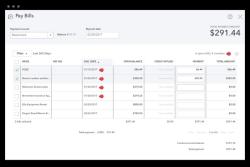
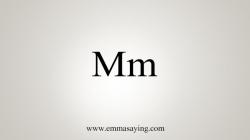
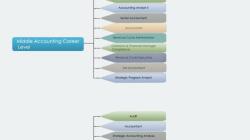
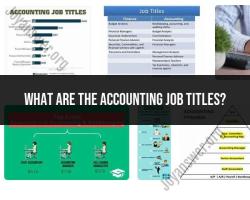

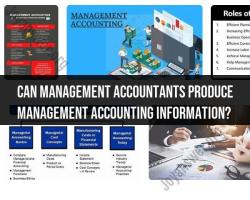
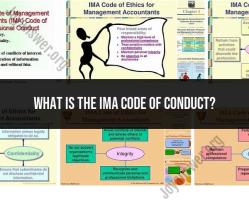

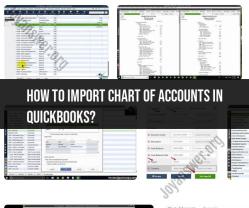
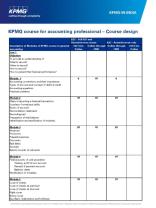
EthicsFirst_CPA
on October 09, 2025Crucial to note the mandatory **4 hours of professional ethics training** every three years. It's the one requirement you absolutely can't skip, and it must be NYSED approved.